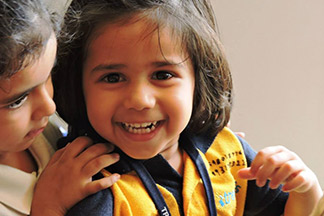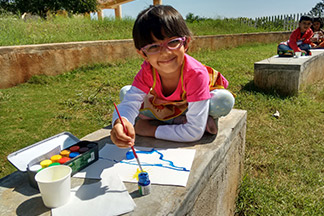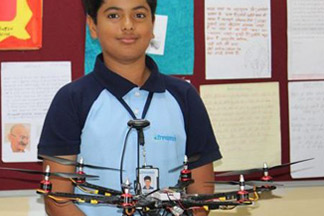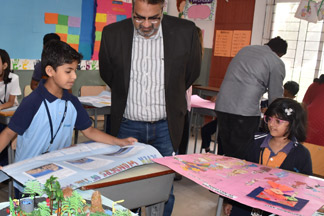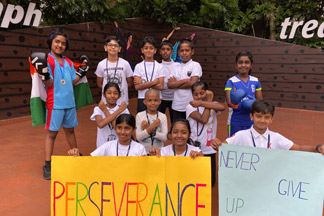Kindergarten
Kindergarten at Treamis – The perfect balance of learning and play
Pre-Kindergarten (Age 3-4 years)
Pre-kindergarten classes offer endless opportunities for children to meet success every day.
As the first school of experience, the child is provided an environment that fosters self-esteem and a genuine love of learning. Circle time with music and movement is combined with dramatic play, art, building blocks, fine motor manipulatives and science and sensory areas help children grow in all areas of development. A sense of wonder is introduced through science units as the children explore the world. Outside, gross motor play provides fun and positive social interactions.
Lower Kindergarten (Age 4-5 years)
The children recognize letters and some letter sounds, add two groups of concrete objects by counting and begin to understand the concept of yesterday, today and tomorrow.
They continue their growth in language and social development as they learn classroom expectations and procedures. Children acquire STEM skills associated with math and science. Understanding of numbers and shapes, hypothesizing, investigating, measuring, drawing conclusions are all acquired through a play-based learning environment.
Upper Kindergarten (Age 5-6 years)
The children acquire foundational literacy and math skills. They learn letter-sound relationships, sight word recognition and basic mathematical functions. They also undergo a character education program which nurtures important social and emotional skills such as listening, understanding feelings and resolving conflicts. Fine motor development and creativity is learned through art projects. All this in addition to building community, learning valuable conflict resolution skills and developing relationships makes this class a perfect transition to Grade 1.
The Kindergarten is a full day program, the specialist and homeroom classes take place in the morning. In the afternoon, after lunch and a nap the children are engaged in various indoor and outdoor activities.
